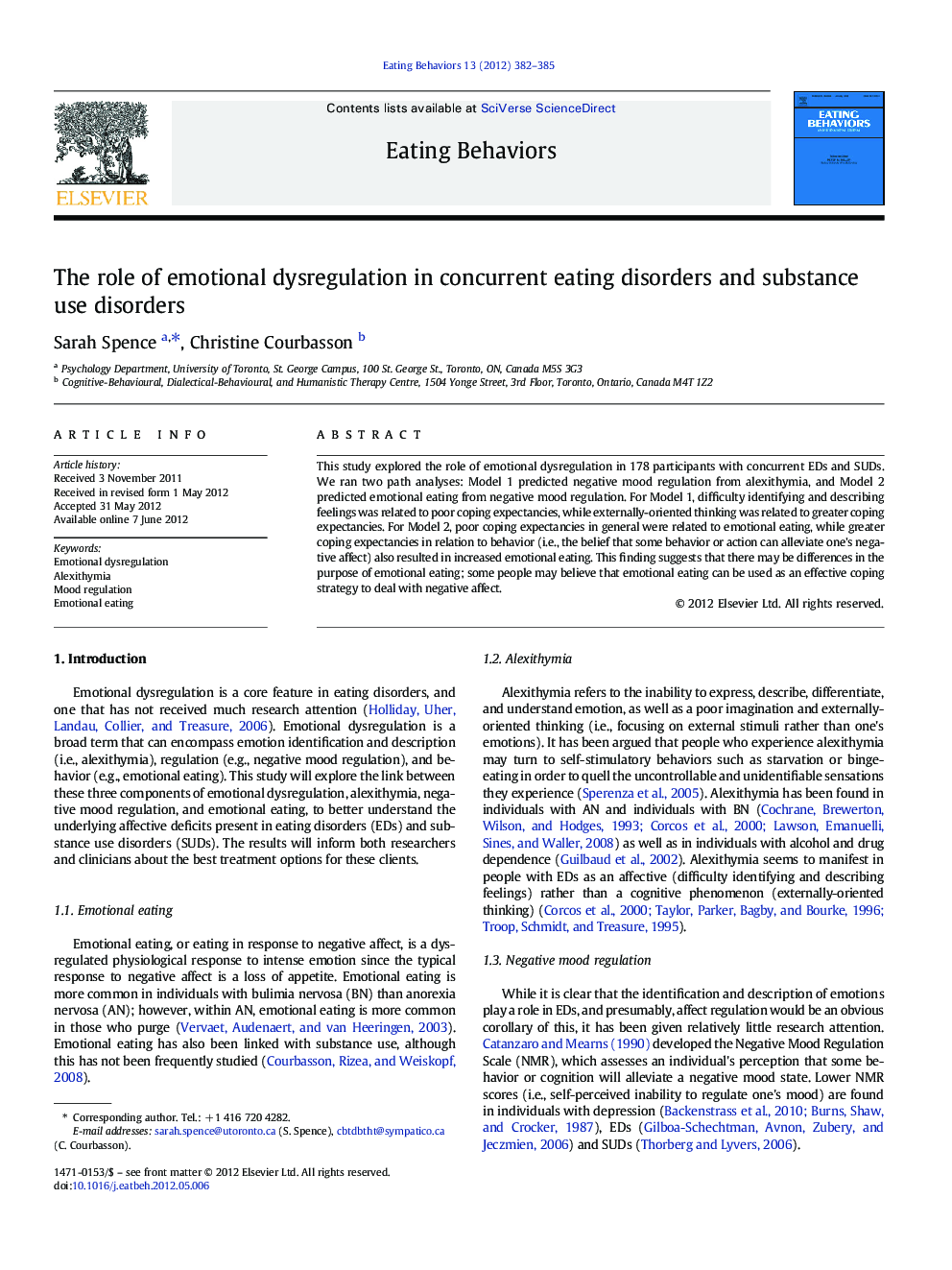| Article ID | Journal | Published Year | Pages | File Type |
|---|---|---|---|---|
| 906668 | Eating Behaviors | 2012 | 4 Pages |
This study explored the role of emotional dysregulation in 178 participants with concurrent EDs and SUDs. We ran two path analyses: Model 1 predicted negative mood regulation from alexithymia, and Model 2 predicted emotional eating from negative mood regulation. For Model 1, difficulty identifying and describing feelings was related to poor coping expectancies, while externally-oriented thinking was related to greater coping expectancies. For Model 2, poor coping expectancies in general were related to emotional eating, while greater coping expectancies in relation to behavior (i.e., the belief that some behavior or action can alleviate one's negative affect) also resulted in increased emotional eating. This finding suggests that there may be differences in the purpose of emotional eating; some people may believe that emotional eating can be used as an effective coping strategy to deal with negative affect.
► This study assessed the role of emotional dysregulation in concurrent EDs and SUDs. ► In general, alexithymia was related to difficulty regulating one's mood. ► Difficulty regulating one's mood was related to emotional eating. ► However, differences in the purpose of emotional eating were found.
